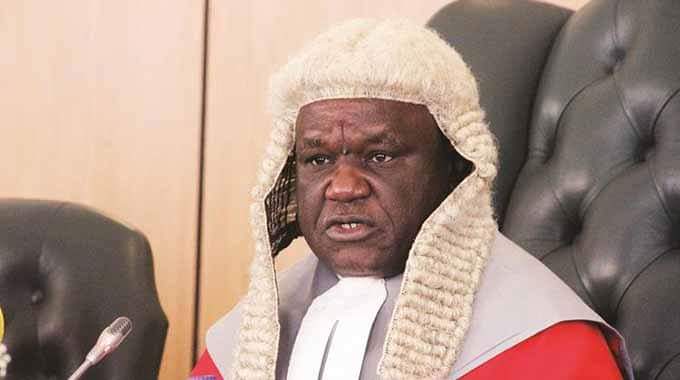The government was forced into a humiliating climbdown on its statements that the country’s judiciary was captured as President Emmerson Mnangagwa came out to say they “wholeheartedly” respected the independence of the judiciary.
Initially, Minister of Justice, Legal and Parliamentary Affairs, Ziyambi Ziyambi had issued a statement criticising the decision made by the High Court after Justices Happias Zhou, Edith Mushore, and Helena Charewa ruled that former Chief Justice Luke Malaba ceased to be the top judge on May 15, 2021, as he had turned 70 years.
“I want to make it clear today that we do not accept the decision of the High Court. We have a serious situation of a Judiciary that has been captured by foreign forces in this country,” Ziyambi said in a statement, adding “we are going to exercise our right in terms of the law and file an appeal against this baseless and meaningless decision of the High Court.”
The justice minister’s statements were not taken lightly as various legal rights groups dug in, saying Ziyambi’s tone, manner and threats affected the independence of the judiciary yet it was vital for the country’s democracy.
Tuesday evening, President Mnangagwa tweeted that the government held the judiciary in high regard.
“In Zimbabwe, the independence of our judiciary is vital to the survival of our democracy. When our courts speak, all Zimbabweans should listen. The Government of Zimbabwe wholeheartedly respects the independence of our judiciary,” he said.
This was also after Permanent Secretary in the Justice ministry, Virginia Mabhiza, issued a statement assuring citizens that the government believes in the independence of the judiciary and respect the principles of the separation of powers as set out in the constitution.
“The government of Zimbabwe, therefore, recognises the importance of the judiciary as a dependable interpreter of the law where various opinions may arise,” she said.
However, Mabhiza said the government, which has given its full consideration to the High Court judgement, was unable to agree with that ruling.
“It has therefore taken measures to have the judgement set aside in accordance with the law. The Government of Zimbabwe will implement all the necessary processes triggered by noting an appeal against the judgement,” she said.
“The Government of Zimbabwe, therefore, wishes to assure the public that it has referred the resolution of the matter to the courts and awaits their final decision. Further, the authority of the judiciary and all its respective offices and structures remain in place with the courts fully functional in discharging their constitutional mandate,” the perm sec said.
Meanwhile, the Zimbabwe Women Lawyer’s Association (ZWLA), said it was disconcerting how Ziyambi’s statements would discourage female lawyers seeking opportunities to the bench or taking up decision-making positions.
“Whilst we note with pleasure the composition (of the High Court) was made of two female judges, we are disappointed in the threats levelled to the bench given case. The adverse impact of such threats affects the independence of judiciary yet such independence is a cornerstone to democracy and the rule of law in Zimbabwe,” said the women lawyers.
Gender equality was not only a value of society but is also constitutionally guaranteed, therefore such a threat affected women, ZWLA highlighted.
“Such threats and intimidation whilst directly affecting the judges in question also affects female lawyers seeking opportunities to the bench, women pursuing justice and women in society as a whole as this negates efforts being made in society as a whole as this negates efforts being made to make sure women take up decision-making positions,” women’s lawyers.
ZWLA reiterated the supremacy of the constitution, which governs all conduct by stating in its Section 2.
“The Constitution is the supreme law of Zimbabwe and any law, practice custom or conduct inconsistent with its invalid whilst Section 164 protects the independence of the judiciary by providing that ‘neither the State nor any institution or agency of Government may interfere with the functioning of the courts,’ such threats are tantamount to interference with the court.
“We duly note the appeal filed by the Minister of Justice to the decision by the High Court in the aforementioned case. This option was always available to the Minister of Justice in the same way to any aggrieved party to litigation. Therefore the public response should have remained in the confines of highlighting the desire to pursue an appeal without the unwarranted threats.”

